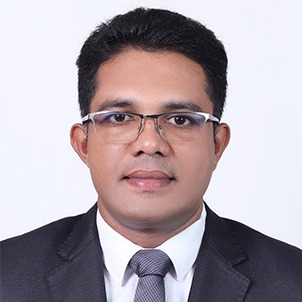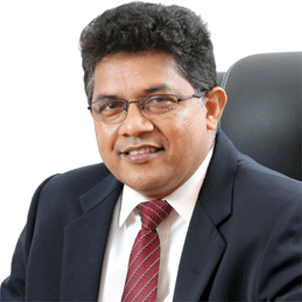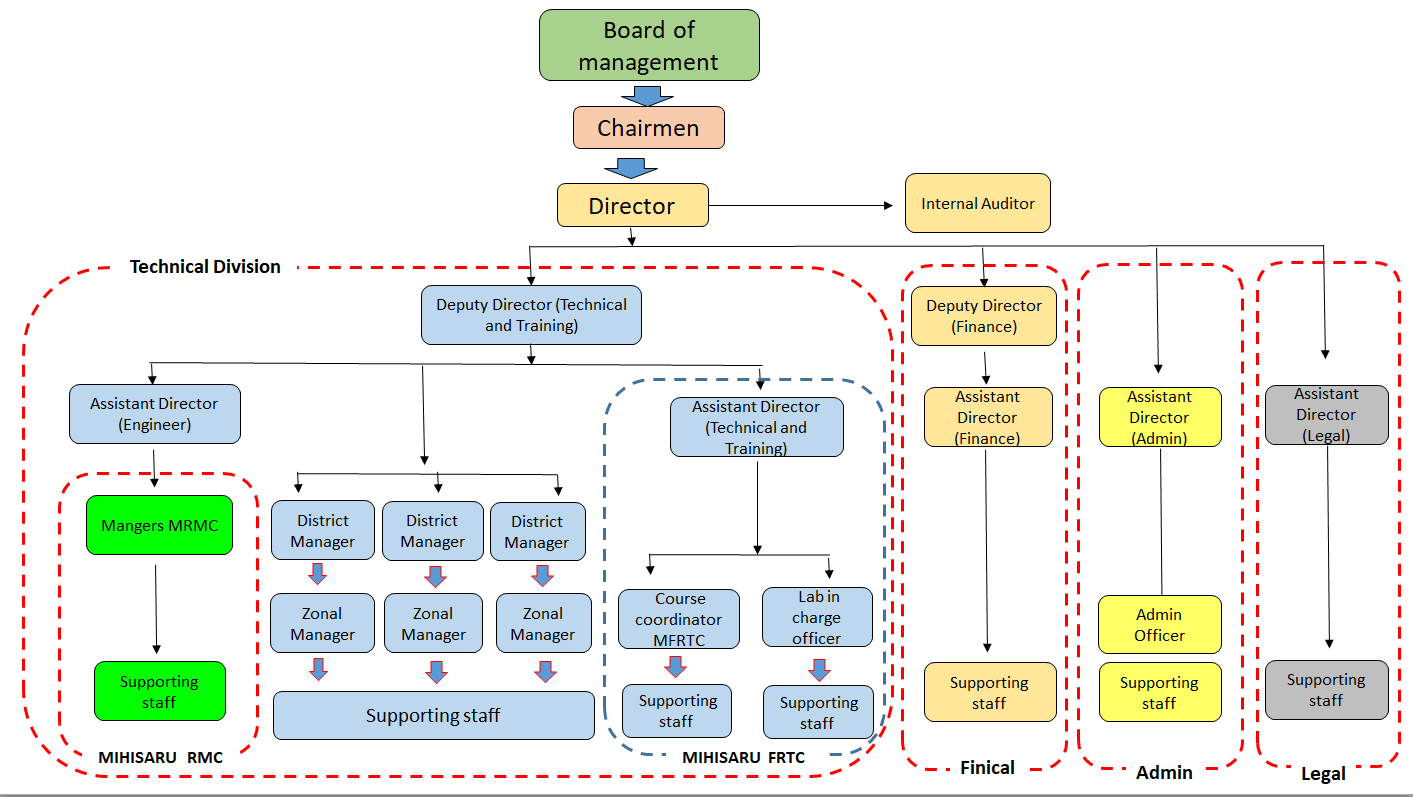











Disposal of Solid Waste has become one of the major environmental issues in Sri Lanka. Dumping of garbage on road sides and sensitive areas such as wetlands, marshy lands, reservation etc. is a common practice adopted by the public and some local authorities. This is due to the attitude of people towards the disposal of garbage and the difficulties faced by the relevant institutions due to their inability to handle proper methods to solve the problem.
Waste Management Authority - Western Province which was established is a government body that focuses on waste management systems for the most populated region of Sri Lanka. The Western Province produces 3,500 metric tons of waste per day, which is 60 percent of the country's total. Waste Management Authority WP registers recyclers, monitors 21 composting facilities for food waste, and offers training, technical guidance, and programs on waste reduction, home composting, biogas, and recycling. The compost is sold under the brand name Mihisaru.
Waste Management Authority of the Western Province (WMA-WP) was established in 2005 under the western province waste management statute no 09 of 1999. Strengthening of the act was done in 2007 and currently, WMA-WP operates under the amended statute.
With a wide range of experiences from its inception, the WMA-WP has contributed greatly to the field of waste management as a facilitating agency. The WMA-WP has broadened its horizons by establishing “MIHISARU” Resource Management Centers to engage in waste processing sectors. The Authority has a competent staff that is full of knowledge, experience, and expertise in their chosen fields. Hence, we further expanded our service by diversifying into various fields such as consultancy in the field of waste management, environmental service for waste disposal, conducting field research and developments, Training, and NVQ certification. In addition, we have expanded our services to provide Testing Laboratory services of fertilizer analysis, Waste characterization water quality testing. We have evolved into a reliable and strong institution over the years.
To be the icon of waste management in the Western Province
To offer innovative and customized solutions in waste management to both government and private sectors based on the identified strategies of waste management within the Western Province to protect and develop the environment. To provide training, research and development to a wider clientele for their sustainability enhancing flexibility and professionalism while developing the waste management sector continuously
The code outlines the Authority's core values of honesty, accountability, safety, professionalism, respect, inclusion, diversity, and employee empowerment and emphasizes the need for fair and honest business dealings in all aspects of the authority's activities and provides professional guidance.

I am very humble and proud to be able to give my guidance to the Waste Management Authority as the Chairman, which will contribute a lot to create a natural and eco-friendly nature free from pollution and excessive human impact.
Waste has become a major challenge in modern society. I look forward to meeting this challenge very successfully by following the proper procedures in the legal field. We act as an authority to take sustainable measures for waste management nationally and internationally according to the requirements of national and international standards.

I am honored and proud to leave this message as the Chief Executive Officer of the WMA-WP that makes a tremendous contribution to better manage the waste which comprises of more than 60% of urban waste generated in the whole island.
It is a never-ending challenge to manage the waste, generated in an ever-growing consumeristic economy present in the Western Province.
Following the current global trends in waste management, in a circular economy, the WMA-WP takes a more sustainable waste management approach to keep up with its theme "let's make waste a real resource". The authority has rendered a great service to the Western Province over two decades to make it a cleaner place in a more productive way. We have been able to uplift our institution with a staff that's rich in knowledge, skill and experience and we use the available physical resources to serve the community with efficiency and productivity.
We can achieve all these goals due to the commitment and dedication of our competent and innovative staff members. The authority aspires to grow from strength to strength by increasing its capacity to serve the waste management field in the future. Hence, we provide innovative, high-tech, cost effective and sustainable solutions for waste management needs of both local and international clientele as per requirements of the regulators, national and international standards.
To overcome severe problems related to inappropriate solid waste handling the Western Provincial Council (WPC) explored the possibility of implementing an effective mechanism to address the issue. In 1999, the Chief Minister and the Minister of Local Government of the Western Province, succeeded in setting up an Authority for waste management.
In 1999, the Waste Management Authority (WMA) Statute No. 09 of 1999 was passed at the WPC and in 2004 Waste Management Authority of Western Province (WMA(WP)) was formally established. This pioneering Authority established since the 13th Amendment to the Constitution handed over the administrative and management roles to provincial government. WMA(WP) is still the only specialized authority for waste management at provincial level.
As this was the first innovative step in provincial waste management process in Sri Lanka, it took time to organize its administrative structure, cadre approval and recruitment of essential staff to run the authority effectively.
At the start there was a heavy demand of service requirements by various segments of the province such as Local Authorities, political leadership, government institutions responsible for health and environment, civil societies and the general public for the long overdue waste related issues. To fulfill these requirements technical assistance from donor organizations were sought in 2004 and the USAID/USAEP came forward and formulated a joint program with the government of Sri Lanka and WPC, to streamline and build the capacity of the WMA(WP). With the USAID/USAEP technical and financial assistance program in 2004 and 2005, WMA-WP identified innovative strategies for administration, technical and legal application for the deliberation of services of the WMA (WP).
Under the same USAID/USAEP program, the WPC further strengthened the legalities of WMA with the Waste Management Authority Statute No. 01 of 2007, incorporating innovative features such as establishing an advisory committee on waste management, introducing a penalty system and empowering local authorities to make by laws
The objectives of waste management statute area:
The Waste Management Authority was established in 2005, with 25 cadre positions by the Management Service Department. Subsequently, based on the service requirements of the authority, WMA cadre was increased up to 40 with the approval of Management Service Department.
With the setting up of the Mihisaru Resource Management Centres, the necessity to expand the WMA staff was identified. Hence, the required staff for Mihisaru centres were recruited with the approval of the WMA Board of Management. At present the total human resource capacity of the WMA is 110. Employees attached to Mihisaru Resource Management Centre work on contract basis and currently the total contractual staff is around 70. WMA also provides training opportunities for individuals (trainees/interns) based on their requests.
Figure 3.1 shows the organogram of the WMA-WP. The execution power of the waste management statute no 1 of 2007 is vested to Board of Management. The Director of the WMA is the Chief Executive Officer responsible for execution of the statute as per the direction given by the Board of Management. The WMA is mainly operated through four departments namely, Technical, Financial, Administration and Legal. Mihisaru Resource Management Centres are administered by the technical division since most of the daily operations are related to technical matters. Therefore, the administration of Mihisaru Resource Management Centres is mainly within the purview of the technical division of the WMA.

The key responsibility of the WMA (W.P.) providing technical guidance on waste management to local authorities of the Western Province - is mainly carried out by the technical division of the WMA (W.P.). The operations of the technical division are handled by a Deputy Director (Technical and Training) and the division carries out the activities under the guidance of the Chief Executive Officer. The Assistant Director oversees technical training of WMA. District Managers look into waste management activities at district level. Under District Managers, Zonal Managers engage in waste management activities. The District Managers and the Zonal Managers are field officers assisted by the supportive staff of the head office. Excluding the employees of Mihisaru Resource Management Centres, the total cadre of the technical division is 18
The administrative division acts as a facilitator to the authority. To reach the targets of the WMA, it plays a significant role predominantly managing the human resources. Headed by an Assistant Director (Admin), an Administrative Officer and other supportive staff it has 8 cadre positions
The activities of the Finance Division include income-based cash flow management, asset & liability management, goods & money management, and financial reporting. As the WMA (W.P.) is subject to Provincial Financial Regulations and Treasury Circulars and instructions, Finance Division plays a crucial and responsible role in complying with financial discipline. There are 8 cadre positions headed by a Deputy Director (Finance), an Assistant Director (Finance) and other supportive staff
The legal division is another facilitating division that helps the smooth running of the WMA (W.P.). It is headed by an Assistant Director (Legal) and an Attorney-at-Law under the purview of the Chairman and the Executive Director of WMA. The legal division handles all legal matters including the execution of mass scale waste management projects. The total cadre is 2
MIHISARU Resource Management Centres were initiated to promote cluster-based waste management facilities and to provide direct services to local authorities and required privet sector to process and dispose of their waste in an environmentally friendly manner. Presently, 4 MIHISARU Resource Management Centres operate situated in Karadiyana, Pohorawattha, Homagama and Pethiyakanda. The daily operations are administered by the respective facility manager while the technical division of the WMA(W.P.) provides technical guidelines. The total cadre of all four MIHISARU Resource Management Centres is 70 who are on contractual basis. Currently the authority has proposed to absorb project staff into the permanent cadre.
The WMA-WP established Mihisaru Training and Research Centre in 2022 addressing the long standing absence of a systematic centre in the field of waste management to carry out field research, training and raising awareness among the public. The centre is located in picturesque Karadiyana, Kesbewa in a three storied building with all the modern amenities such as lecture halls, conference rooms, discussion halls, laboratories, libraries, canteens and recreational facilities.
The primary objective of this initiative is to provide opportunities for training, research and awareness programs to interested parties both local and foreign to engage in waste management projects. The center offers its services not only to the Western Province but also to other provinces as well as to foreigners. The centre is registered under the Tertiary and Vocational Education Commission (TVEC) and it conducts diploma certificate courses, seminars, NVQ courses, online training, video conferences, short term courses and on-the-job training programs.
The center has signed MOUs with reputed universities and research institutions to provide up-to-date and qualitative services to its stakeholders